Introduction
Few pandemics in modern human history have wreaked as much havoc as HIV/AIDS. Although it is a disease with global ramifications, there is little doubt that the African continent has been among the most severally affected by its impact. Estimates put the number of people living with HIV/AIDS at 42 million, 74% of whom live in Sub-Saharan Africa. HIV/AIDS clearly has an African face. Furthermore, despite having been around for over two decades, the main focus of the response has either been epidemiological, or on attitudinal change. Most critically, such responses under-estimate the place of law and of the legal machinery as either facilitator or as obstacle to the design of effective measures to tackle the problem. The problem is compounded by the lack of a human rights-based approach to addressing the issue.
Some attention has been given to the legal dimensions of the pandemic. However, these are surprisingly few and far between. Thus, while public officials and non-governmental workers are concerned with increasing the supply of anti-retroviral (ARV) drugs, they pay little attention to the possible questions of discrimination and inequality that may arise, for example, the impact of any program on displaced persons, on sexual minorities and on other groups who largely fall under the radar. Furthermore, when measures of legal reform are pursued and eventually adopted-as has recently been the case in Uganda-they often adopt a punitive, discriminatory and anti-rights posture. In this way they reinforce a stigma and increase conditions of marginalization and inequity.
Despite significant developments in addressing HIV/AIDS pandemic in general, there is still a lacuna in the teaching and dissemination of knowledge about the link between HIV/AIDS, law and human rights in the East African region. The subject is lost within the broader context of concern with issues such as Medical Professional Ethics; the Liability of Health Workers, and Legislation on Public Health. Furthermore, given the experience with the case of Uganda in which infection rates stabilized for some time but then registered a regression, it is abundantly clear that there is a need to link the issue to its varied human rights dimensions.
In light of the above, the Human Rights & Peace Centre (HURIPEC) at Makerere University in Uganda, established a two-week program for teaching Law, Human Rights and HIV/AIDS to lawyers, activists and policy makers-whether in the Public Service, in private practice , academia or in the non-governmental arena. The course introduced and trained participants on the basic elements of law, Human Rights and HIV/AIDS, beginning with a broad examination of the rights and epidemiological issues involved. Special attention was paid to the situation of persons who had been particularly marginalized by the legal discourse on the pandemic, including persons living with HIV/AIDS, sexual minorities, children and displacees. It also focused on the manner in which the law could be innovatively and progressively used as a mechanism to improve attention to the plight of those infected and affected by the pandemic.
In addition, the program provided a foundation on which there could further targeted research-both basic and policy oriented in the area of law, Human rights and HIV/AIDs. Ultimately, the objective of the program/course was to create a cadre of legal practitioners fully equipped with basic skills in Law, Human Rights and HIV/AIDS in order to promote greater policy attention, scholarship and activism on an area of law that was of increasing significance to the basic right to health, to life and to an adequate standard of living implicated by the pandemic. With this course, not only was there an opportunity to influence the government and the public arena, but eventually for a more holistic, inter-disciplinary approach to an area that was largely regarded as Medical.
Eligibility
The course was primarily intended for mid-and senior level lawyers activists and policy makers, as well as recent graduates of African law Schools (of not more than five years duration), who were actively engaged in advocacy, public interest litigation and other innovative legal strategies to address the HIV/AIDS pandemic to enable such graduates to appreciate the importance of this growing area of legal scholarship and practice, while also equipping them with skills that would allow them to bring some influence to bear on the different spheres of legal concern in which they would be operating once their careers begin. At the end of the training, participants were presented with Certificates of Attendance.
